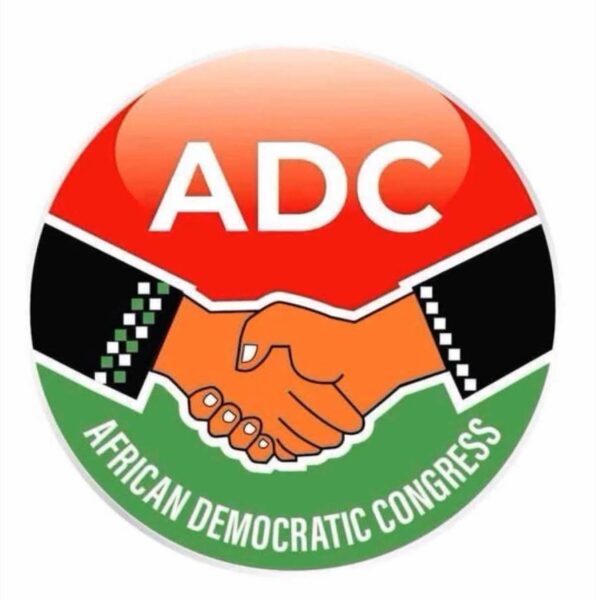One of the most profound quotes from the scriptures says, a house divided against itself cannot stand. It becomes even worse when that house was built on a shaky foundation in the first place. That, in many ways, captures the current state of the African Democratic Congress (ADC) in Kebbi state. The ADC is a house now cracking under the weight of its own contradictions.
This contrasts sharply with the pomp and pageantry that heralded its entrance, when the ADC stormed Kebbi with its emergency national officers led by Nasir El-Rufai, who was, at that time, playing the role of political babysitter to former Minister of Justice and Attorney General of the Federation, Abubakar Malami.
Many observers doubted the durability of such an alliance. Reason being that it appears to be an arrangement not of vision or shared ideology, but of mutual disgruntlement. A gathering of disenchanted men who suddenly found themselves naked out of power, clinging to whatever platform could keep them politically relevant.
And as expected, those early fears have now materialised. The ADC in Kebbi is currently in a free fall, gripped by a gale of defections only rivalled by a gale of suspensions. The party has become a theatre of the absurd, minting “leaders” by the minute, with individuals declaring themselves executives after holding “meetings” with their wives and children. It’s increasingly more difficult to know who is in charge or what the ADC even stands for in Kebbi these days.
Here then is the tragedy of unholy alliances, and I can’t say I’m surprised. The ADC’s implosion only mirrors a broader disease afflicting Nigeria’s politics: the absence of internal democracy, the dominance of ego, and the suffocating pursuit of self-interest over collective vision. It is almost as if every political platform in Nigeria is cursed to repeat the same cycle of promise, pride, and collapse.
But it is more disappointing for the ADC, which had claimed to emerge from a burning desire to rescue Nigeria, to offer an alternative to the old, weary order. What we have seen in Kebbi is the opposite, and it’s disappointing to be caught in this mess, this early. The party has become a cautionary tale, a reminder that lofty slogans without structure or sincerity are mere noise. And at the centre of it all stands Abubakar Malami, the party’s self-styled poster boy, who has spent more energy heckling the government of the day than building the credibility of his own party.
For a man who once held one of the most powerful offices in the country, Malami has shown an astonishing inability to transition into the more delicate craft of politics, keeping him rooted to his status as a fledgling politician. Leadership requires humility and patience; qualities that rarely thrive where entitlement reigns. Instead of uniting his members or offering clear direction, he has presided over confusion, disaffection, and the slow death of the very house he hoped to inhabit.
A professor once described what we are witnessing in Kebbi state as RIRO—rush in, rush out. He warned that people who rush into relationships or causes without reflection often rush out just as quickly when things get tough. That succinctly sums up the ADC’s romance with politics in Kebbi. The party rushed in, full of noise and bluster, but as we have seen, it clearly lacks the discipline, sacrifice, and coherence needed to sustain momentum.
We’ve said it before, and it bears repeating: Malami has yet to differentiate between the all-powerful minister he once was and the fledgling politician he now is. Power, in government, is given; but in politics, it must be earned, nurtured, and defended through persuasion, organisation, and people’s skills – qualities Malami seems to have left behind in Abuja.
He has failed to unify his followers, failed to inspire loyalty, and failed to offer a coherent alternative to the ruling establishment. His political ambition has been inconsistent, oscillating between interest and self-immolation in what can only be described as a flip-flop gubernatorial aspiration. And with a party now in tatters, one wonders how he intends to challenge Governor Nasir Idris, a man not only with a stable political structure behind him, but also a record of tangible service to show for it.
Well, if there’s anything this crumbling ADC experiment has revealed to the people of Kebbi, it is that those who claimed they could do things differently are often no different themselves. I mean, here, we have seen folks who lack the humility, the sacrifice, and the compromise required to build even a modestly functional political family. How then would they deliver purposely governance? Politics, after all, is not about shouting “change” or forming alliances out of bitterness; it’s about the discipline to listen, organise, and sustain a cause greater than self.
And that’s the tragedy of Kebbi’s ADC story. A party that started out waving the banner of reform has ended up proving the Yoruba adage that the worm that eats spinach lives within it; that the disease ADC sought to cure lives within it. Rather than building bridges, its leaders are busy digging trenches; instead of reconciliation, they are perfecting exclusion.
Nigerians have been burned too many times by politicians who crave power at all costs, yet have no clue what to do with it once it’s in their hands. They rise on propaganda, stumble on pride, and fall into confusion, leaving the people stranded and disappointed. The cycle repeats each time with new faces, the same old story.
At this point, perhaps the people of Kebbi should count themselves lucky. Sometimes, Allah protects His people not by giving them what they want, but by exposing what they should avoid. Maybe this messy implosion of the ADC is divine mercy in disguise, a revelation of true colours before it’s too late.
Tuly, what better protection could there be than to see, behind all the polished convoys and flowery speeches, the emptiness of those who seek to rule? In the end, the people of Kebbi deserve more than recycled promises and collapsing houses. They deserve leaders who can stand not just together, but on firm ground.
Kabir writes from Abuja








